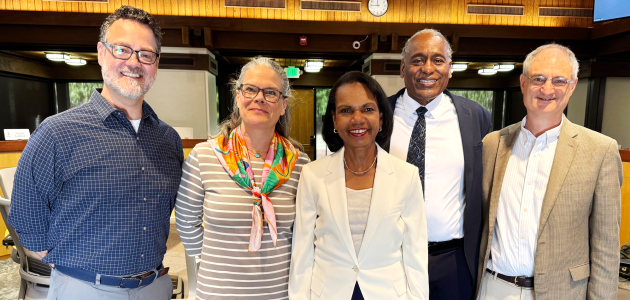"Walt Wriston gives us ideas to use, insights into what the future holds, and suggestions as to what can be done to best achieve a bright and promising future."—from the Foreword by George P. Shultz
In his 1992 book The Twilight of Sovereignty, Walter Wriston explained how the new technological revolution was transforming the world. Since then, the trends he described have grown increasingly evident. It has become clear that we are indeed living through a momentous revolution that affects every aspect of our lives. With the all-encompassing changes generated by the Internet, the competition for economic success is between those who get it and those who don’t or, as Wriston puts it, between “the quick and the dead.” And getting it is a mind-set that includes recognizing that many of the goods and services flooding the new marketplace are supplied by firms we’ve never heard of located in places we may have difficulty finding on a map.
In Bits, Bytes, and Balance Sheets (Hoover Institution Press, 2007), Wriston looks at the changes produced by the new economy and defines the new rules of economic engagement. He points out that, because intellectual capital is the driver in this new economy—based largely on service rather than on agriculture or industry in the United States—new global economic, accounting, and financial measures must be developed to give governmental and regulatory bodies, analysts, and the public the information they need to make accurate value judgments.
Wriston explains why the new economy must be viewed as a sensitive ecosystem that responds—sometimes weeks later—to seemingly trivial events and how the age of instant information has drastically affected public policymaking throughout the world. He tells why the unintended consequences of the information revolution, such as increased government regulation, will only stifle its development and why innovation is the key in our networked world.
Wriston acknowledges that some of the old rules—those based on human nature rather than economic dogma—still apply, but his underlying message is clear: intellectual capital is more important than physical capital in today’s economy. Businesses must adapt to this reality or perish.
Bits, Bytes, and Balance Sheets: The New Economic Rules of Engagement in a Wireless World
by Walter B. Wriston
| ISBN: 978-0-8179-4681-0 | $25.00 |
| 160 pages | November 2007 |











